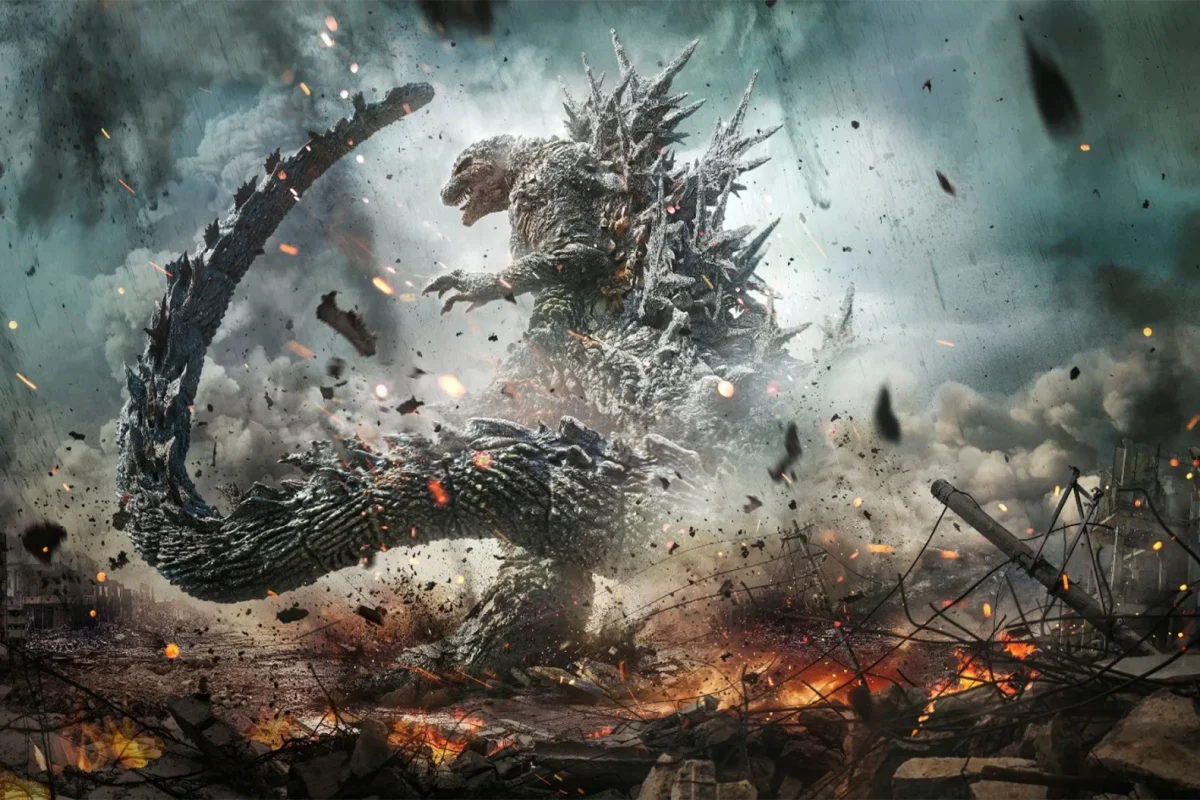Of all the franchises to blow up in modern media, Godzilla isn’t exactly what one expects. With the Japan side of the franchise having not put out a movie since 2016 with Shin Godzilla (not counting the American-made movies, like Godzilla King of the Monsters and Godzilla vs. Kong), Toho (the film company responsible for the creation of Godzilla) had taken more of a backseat in the movie industry. This all changed with the release of Godzilla: Minus One, a japanese-made film reinventing Godzilla’s past, released December 1, 2023. But how exactly did it achieve such high sales compared to bigger, flashier, and more expensive movies?
The movie centers around Kōichi Shikishima, a Japanese Kamikaze pilot. He encounters a smaller, more dinosaur-like young Godzilla during World War II, and has yet to fully recover. Godzilla itself has grown due to nuclear testing, rampaging through Tokyo. After a failed attempt, Shikishima and his crew successfully neutralize the threat Godzilla presents, but a final scene reveals it may only be temporary.
Compared to similar movies, such as Godzilla (2014), Shin Godzilla, and the older Godzilla movies of the twentieth century, Godzilla: Minus One has a compelling human plot, delving more into the characters than other/similar movies, having a sense of peril and attachment for the human characters that more recent movies (specifically the American releases) have lacked. Godzilla himself has also returned to his roots, being stripped of the “anti-hero” status that some modern films such as Godzilla: King of the Monsters and Godzilla: Final Wars (a Japanese film released in 2004) and returning him to his villainous side. It’s also free of other Kaiju (the term for giant monsters, usually associated with the Godzilla franchise), which some may see as a bad thing, but in this case it keeps the main focus on Godzilla himself, which is always good for the character with its name in the title. For a sci-fi monster movie, it has surprisingly deep messages of grief, redemption, and survival. It is even up for an Oscar nomination, which is a tribute to its incredible quality.
Interestingly, Godzilla: Minus One was praised while higher-budget movies like Ant Man and the Wasp: Quantumania went mostly unnoticed. The movie had a much smaller budget, only about 10-12 million dollars, compared to the around 275 Million dollars in the modern Marvel movies. Perhaps it’s the story which had much more compelling and grounded motives than newer movies. Maybe the story’s visuals, despite the lower budget, were so good it was nominated for Best Visual Effects at the academy awards. It’s possible that the pure nature of the movie, not made to make money but to tell a story, are to blame. It could be a combination of these qualities, none of them at all, or perhaps even more I haven’t mentioned.
To conclude, Godzilla: Minus One was a Hollywood groundbreaking film, storming in and stealing the attention of millions, much like Godzilla itself would. A great film that came out of the blue, it is well worth a watch.












